Rispondi al commento
Untitled
EMMA HOLLY : LA SEDUZIONE DELLA SENSUALITA'
EMMA HOLLY : SEDUCTION OF SENSUALITY
 Emma Holly lives in Minnesota, where the winters are long and people will use any excuse to warm up. She loves exploring different genres in her writing—as long as they’re HOT. Her favourite inventions are coffee, chocolate, and the printing press.
Emma Holly lives in Minnesota, where the winters are long and people will use any excuse to warm up. She loves exploring different genres in her writing—as long as they’re HOT. Her favourite inventions are coffee, chocolate, and the printing press.
her website : http://www.emmaholly.com/
Emma Holly vive in Minnesota, dove gli inverni sono lunghi e la gente utilizza ogni scusa per riscaldarsi. Ama esplorare diversi generi letterari, purché siano HOT. Le sue invenzioni preferite sono il caffè, la cioccolata e la stampa.
il suo sito : http://www.emmaholly.com/
Emma Holly will answer to all your questions and will give away an autographed copy of a title (the choice will be up to the lucky winner!) to one reader among those who will leave a comment. So don't forget to sign your comment with your name or nickname.
Emma Hollly risponderà a tutte le vostre domande e darà in regalo una copia autografata di un titolo a scelta della fortunata vincitrice a una lettrice sorteggiata tra tutte coloro che interverranno lasciando un commento. Quindi non dimenticate di firmarvi, con un nome o uno pseudonimo, per farvi riconoscere!
 BEYOND SEDUCTION
BEYOND SEDUCTION
Merry Vance has made it quite clear that she has no interest in marriage. But that hasn't stopped her long-suffering suitor from proposing--and her parents get more furious each time she refuses. Merry has no choice but to concoct a sinfully scandalous solution: to pose for Nicolas Craven, London's most sought-after artist. No man in his right mind would marry a woman who posed nude for this notorious rogue…
But Nicolas has his own plans for the feisty young woman he has convinced to move into his home. In Merry's plain face, he sees uncommon beauty. In her soft eyes, he sees sparks ready to burst into flame. And, best of all, he's sure her sweet demeanor will tantalize the ton--and provide the perfect foil for his dangerous charm...
Merry Vance ha fatto ben capire di non essere interessata a sposarsi. Ma questo non ha impedito al suo spasimante di lungo corso di farle una proposta di matrimonio, né ai suoi genitori di infuriarsi sempre di più ad ogni suo rifiuto. Merry non ha altra scelta che preparare un piano scandalosamente peccaminoso: posare per Nicolas Craven, l'artista più ricercato di Londra. Nessun uomo sano di mente sposerebbe una donna che ha posato senza veli per un famoso libertino...
Ma Nicolas hai i propri piani su questa giovane dal bel caratterino che ha convinto a trasferirsi a casa propria. Nel viso dai tratti banali di Merry, lui vede una bellezza non comune. Nei suoi occhi delicati, lui vede scintille pronte a trasformarsi in fiamme. E, più di tutto, è sicuro che il suo dolce contegno tormenterà il ton e sarà la perfetta calamita per il suo fascino pericoloso...
 MENAGE
MENAGE
Bookstore owner Kate comes home from work one day to find her two flatmates in bed together. Joe - a sensitive composer - is mortified. Sean - an irrepressible bad boy - asks her to join in.
As they embark on a polysexual menage a trois, Kate wants nothing more than to keep both her admirers happy. However, things become complicated. Kate has told everyone that Sean is gay, but now he and Kate are acting like lovers.
Can the three lovers live happily ever after - together?
La libraia Kate torna a casa dal lavoro per scoprire i suoi due coinquilini a letto insieme. Joe- un compositore sensibile-ne è motificato. Sean- un irrefrenabile cattivo ragazzo- le chiede di unirsi a loro.
Imbarcandosi in un mènage a tre, Kate non desidera altro che far contenti entrambi i suoi ammiratori. Tuttavia le cose si complicano. Kate ha detto a tutti che Sean è gay, ma ora lui e Kate sono amanti.
Riusciranno questi tre amanti a vivere felici per sempre, insieme?
 CATCHING MIDNIGHT
CATCHING MIDNIGHT
1349. Orphaned by the plague, young Gillian is rescued from certain death by a pack of shape-shifting immortals. Once a human child, now Gillian is one of them herself, reveling in the pleasures of the flesh and the hunt. This ethereal beauty would be happy if only her heart did not yearn for the world beyond their caves...
Aimery Fitz Clare is mortal, second son to a noble house, and a master falconer. Little does he dream that his latest "catch" is more than she seems. Gillian has taken a falcon's form to escape her immortal keepers, only to find herself losing her heart to her newest captor. Aimery's kindness is a powerful seduction, not to mention his human beauty and warmth. Does Gillian dare embrace this forbidden love, and can it survive her jealous brethren baring their fangs?
1349. Resa orfana dalla Peste Nera, la giovane Gillian viene salvata da morte certa da un gruppo di immortali mutaforma. Prima una bambina umana, ora Gillian è una di loro e gode dei piaceri della carne e della caccia. Questa bellezza eterea sarebbe felice se solo il suo cuore non bramasse il mondo al di fuori delle loro caverne…
Aimery Fitz Clare è un mortale, secondogenito di una nobile casata e mastro falconiere. Non immagina che la sua ultima “preda” sia più di ciò che sembra. Gillian ha assunto la forma del falco per sfuggire ai suoi guardiani immortali e si è ritrovata col cuore catturato dal suo ultimo rapitore. La gentilezza di Aimery è incredibilmente seducente, senza contare la sua bellezza umana ed il suo calore. Oserà Gillian perseguire questo amore proibito e potrà esso sopravvivere quando i suoi confratelli mostreranno le loro zanne?
 THE DEMON'S DAUGHTER
THE DEMON'S DAUGHTER
Inspector Adrian Philips keeps the peace between demons and humans in Avvar, a city not unlike Victorian London. To do his job, he's allowed his strength to be enhanced by demon technology, a choice that's cost him his wife, his family, and—some would say—his humanity. Rejected by both races, he hungers for a woman's touch.
Roxanne McAllister is an outcast, too: the illegitimate daughter of an infamous chanteuse. One fateful night brings Roxanne and Adrian together, and though the border between human and demon is treacherous, these two may be just the ones to cross it. The question is, will the exquisite pleasure they find together be worth the risk...
L’ ispettore Adrian Philips mantiene la pace tra demoni ed umani ad Avvar, una città non diversa dalla Londra vittoriana. Per meglio compiere il suo dovere, si è fatto applicare degli impianti alieni che hanno aumentato la sua forza, scelta che gli è costata la moglie, la famiglia e la sua umanità direbbero alcuni. Rifiutato da entrambe le razze, desidera ardentemente il tocco di una donna.
Anche Roxanne McAllister è un’ emarginata: è la figlia illegittima di una famigerata cantante.
Un notte fatidica si incontreranno ed anche se il confine tra demone ed umano è pericoloso, loro saranno quelli che lo varcheranno. La domanda è: il meraviglioso piacere che troveranno insieme varrà il rischio?
INTERVIEW - INTERVISTA
1- Hello Emma and welcome to our blog, we are delighted to have as a guest. Beyond Innocence, your first historical romance, has just been published in Italy with a remarkable success. Coming from a different literary genre, why did you decide to write it (and his sequel Beyond Seduction) and did you enjoy it?
First, thanks for inviting me! I’m happy to meet my Italian readers.
My first five published novels were contemporaries: erotica I’d written for the “black lace” line at Virgin Books in the UK. I really enjoyed the experience, but their distribution in the US was quite limited, and I didn’t have much room to grow, success-wise. Although I wanted to continue writing “hot” stories, here in the US, editors thought only historical settings would work for readers. That’s changed in years since, but back then it was considered gospel. I’d never written a historical before (the thought of research scared me) so when my agent asked if I had any ideas for that kind of story, I was sort of surprised when my mouth opened and said, “As a matter of fact, I do!”
From that moment of necessity, Beyond Innocence was born. To my delight, I discovered I loved research. When I got to pick the topic and the books myself, it wasn’t at all like schoolwork! Research—and buying the books to do it—is still one of my favourite parts of the writing process.
1- Ciao Emma e benvenuta nel nostro blog, siamo felici di averti come nostra ospite.
Oltre l'innocenza, il tuo primo romance storico, è stato da poco pubblicato in Italia con grande successo. Provenendo da un diverso genere letterario, cosa ti ha spinto a scriverlo (col suo seguito Beyond Seduction ) ed è stata un'esperienza piacevole?
Prima di tutto grazie per avermi invitata! Sono lieta di incontare le mie lettrici italiane.
I mei primi cinque libri erano contemporanei del genere “erotica”, che avevo scritto per la collana “black lace” della casa editrice inglese Virgin Books. Era stata un'esperienza davvero piacevole, ma la loro distribuzione negli Stati Uniti era piuttosto limitata, quindi non avevo molte possibilità di crescita anche in termini di successo. Benchè io volessi continuare a scrivere storie “hot”, qui negli Stati Uniti gli editori ritenevano che funzionassero solo storie con ambientazione storica. Le cose sono cambiate da allora, ma all'epoca sembrava un dogma. Non avevo mai scritto romance storici (mi spaventava l'idea della ricerca), così quando il mio agente mi chiese se avessi una qualche idea per quel tipo di storia, fui sorpresa che la mia bocca si aprisse e dicesse: ”In effetti si!”.
Da quel momento di bisogno nacque Oltre l'innocenza. Con mia delizia, scoprii che la ricerca mi piaceva. Essendo io quella che sceglieva l'argomento ed i libri, non era affatto come i compiti di scuola! La ricerca, e comprare i libri per farla, è tuttora una delle mie parti preferite del processo di scrittura
 2- I had the distinct impression that you really loved you three protagonists: Florence, Edward and Freddie. Am I wrong?
2- I had the distinct impression that you really loved you three protagonists: Florence, Edward and Freddie. Am I wrong?
Naturally, I love all my characters, but—yes—I have a special fondness for those three. I also loved playing a bit with the conventions of the romance formula: the strapping, arrogant hero, the super-innocent heroine, the ne’er-do-well brother who needs to be gotten out of scraps. I love romance, always have, but I also know I’ll never be a typical romance writer. Beyond Innocence was my chance to write a little love letter to the genre, and then put my own twist on it.
2- Ho avuto la netta impressione che tu amassi veramente i tuoi tre protagonisti: Florence, Edward e Freddie? Mi sbaglio forse?
Naturalmente, io amo tutti i miei personaggi, ma si, ho un particolare attaccamento per questi tre.
Ho anche amato giocare con le convenzioni della formula del romance: l'eroe forte ed arrogante, l'eroina super innocente, il fratello un po' incapace che ha bisogno di essere tirato fuori dai guai. Amo il romance, l'ho sempre amato, ma ho sempre saputo che che non sarei stata la tipica scrittrice di romance. Oltre l'innocenza è stata la mia occasione per scrivere una piccola lettera d'amore a questo genere, imprimendogli la mia direzione.
3- Freddie is a wonderful character, I found his internal growing trough the book quite moving. He is also gay. It is not the first time a gay character appears in one of your novels. Why this choice?
I’m glad you enjoyed Freddie’s story. It was my personal secret as I was writing that he was the true hero of the story. To me, he was the bravest of them all.
As for why I chose him: Well, this isn’t so true anymore, but at the time, most of the gay characters I’d seen in romances were villains, comic sidekicks, or sympathetic but sad figures who never got an HEA. Freddie was invented in part as a reaction to that, but as I was writing, he became more than a statement. He became a real person to me, with his own emotional journey. I think I’ll always be pleased by that.
3- Freddie è un personaggio meraviglioso, mi ha commossa vedere la sua crescita durante tutto il racconto. Ed è anche gay. Non è la prima volta che un personaggio gay appare in uno dei tuoi racconti, qual'è la ragione di questa scelta?
Sono contenta che ti sia piaciuta la storia di Freddie. Mentre scrivevo era il mio segreto che in realtà il vero eroe della storia fosse lui. Per me è il più coraggioso di tutti.
Riguardo al perchè l'ho scelto: beh non è più vero ora, ma all'epoca i personaggi gay che vedevo nei romances non erano che cattivi, figure comiche, o simpatiche ma tristi e non avevano mai alcuna possibilità di un lieto fine. Freddie è stato inventato in parte per reazione a tutto questo, ma mentre scrivevo è divenuto più di un'asserzione. E' diventato una persona reale per me, col suo percorso emotivo. Penso che di questo mi compiacerò sempre..
4- Talking about homosexuals, one of your most beloved book, by me as well I confess, is Menage I found it sexy and extremely funny. Did you like it as much as your readers did? And did you expect it to become so popular?
 Menage was very fun to write, and very fun to watch as readers discovered it, especially since a lot of them had never read erotica before. I felt like an ambassador for the hot stuff!
Menage was very fun to write, and very fun to watch as readers discovered it, especially since a lot of them had never read erotica before. I felt like an ambassador for the hot stuff!
Did I expect it to be so popular? Most writers want heaps of people to buy and enjoy their stories. I’m no different, but no matter how high your hopes are, there’s always some aspect of popularity that takes you by surprise—those moments when you just have to pinch yourself. Over the years, Menage has provided more than a few. (Trust me, you never forget the first time a reader tells you your book was responsible for the conception of her youngest child!)
4- Parlando di omosessuali, uno dei tuoi libri più amati, anche da me lo confesso, è Menage che ho trovato estremamente sexy e divertente. A te è piaciuto tanto quanto ai tuoi lettori? E ti aspettavi che diventasse così popolare?
Menage è stato molto divertente da scivere, così come lo è stato vedere i lettori mentre lo scoprivano, soprattutto perché molti non avevano mai letto dell'”erotica” prima. Mi sono sentita come un'ambasciatrice per il genere!
Mi aspettavo che divenisse così popolare? Buona parte degli scrittori vuole che un mucchio di persone comprino ed apprezzino le loro storie. Io non sono diversa, ma non importa quanto grandi siano le speranze, c'è sempre un aspetto della popolarità che ti coglie di sorpresa, uno di quei momenti in cui devi darti un pizzicotto. Nel corso degli anni, Menage me ne ha procurati parecchi di questo tipo. (Credimi, non si dimentica la prima volta che una lettrice ti dice che il tuo libro è stato responsabile del concepimento del suo figlio minore!)
5- You write contemporary erotica, historical romance, sci- fiction, paranormal. Which is you favourite genre and period setting if you have one? And why?
I don’t have a favourite period, because I love learning about new ones as I go along. I do, however, love writing stories with paranormal/fantasy content. I guess I’m happiest when my creative imagination has free rein!
5- Tu scrivi diversi generi: erotica contemporanea, romance storici, fantascienza, paranormale. Quali sono il tuo genere ed il tuo periodo di ambientazione preferiti, se ne hai? E perchè?
Non ho un periodo preferito, perchè amo imparare a conoscerne sempre di nuovi mentre vado avanti. Tuttavia amo scrivere storie con contenuto paranormale/fantasy. Presumo di essere più felice quando la mia immaginazione creativa può avere briglia sciolta!
6- Catching midnight, the first novel in the Midnight series, brings some strong resemblance to Mary Jo Putney’s Uncommon vows (the medieval setting, the extremely indipendent girl and the falcon). Is it a chance or you actually took inspiration from it?
I haven’t read Uncommon Vows, but I’m sure there are parts of Catching Midnight that resemble many other authors’ books. Vampire authors in particular tend to draw from a common pool of inspiration: Bram Stoker, Buffy the Vampire Slayer, that sort of thing. I do remember one of my biggest inspirations for Catching Midnight was some research I ran across about Medieval falconry, and how the trainers would calm the birds. The first image that came to me from that story was Gillian confronting Aimery with her eyes sewed shut. It was so strange that it made me laugh—a common sign for me that I’m onto something good!
 6- Cacthing Midnight (primo volume di una serie paranormale che consta finora di tre romanzi) ha forti rassomiglianze con Promesse di Mary Jo Putney (l'ambientazione medievale, la ragazza fortemente indipendente ed il falcone). Si tratta di un semplice caso o in effetti ne hai tratto ispirazione?
6- Cacthing Midnight (primo volume di una serie paranormale che consta finora di tre romanzi) ha forti rassomiglianze con Promesse di Mary Jo Putney (l'ambientazione medievale, la ragazza fortemente indipendente ed il falcone). Si tratta di un semplice caso o in effetti ne hai tratto ispirazione?
Non ho letto Promesse, ma sono certa che ci sono parti di Cacthing Midnight che assomigliano a molti libri di altri autori. In particolare, quelli che scrivono di vampiri tendono a prendere ispirazione più o meno sempre dalle stesse fonti: Bram Stoker, Buffy l'Ammazzavampiri e simili.
Ricordo che una delle più grandi ispirazioni per Cacthing Midnight, mi è venuta da una ricerca sulla falconeria medievale e su come gli addestratori calmassero gli uccelli. La prima immagine che mi è arrivata alla mente di questa storia, è quella di Gillian che fronteggiava Aimery con gli occhi sigillati. Era talmente strano che mi ha fatto ridere - per me il segno usuale per cui so di essere sulla buona strada!
7- Your heroes are often decidedly Alpha. There are endless discussions about this subjects: do women really want their men to be Alpha? What about you? Which is your opinion both as a woman and as a writer?
I think of my heroes as a mix of alpha and beta, with the percentage varying from book to book. They’re confident, brave—men you can count on when you need someone to have your back. But no matter how arrogantly they may sometimes behave, my heroes always have something sensitive inside. They’re as tender as they are tough, thinkers as well as doers, nurturers as well as cavemen-- usually with a rich emotional life.
I’m not sure it’s a conscious choice for me to write them this way. That’s just the way they come to me. Men are people, not all one thing or another. I try to make my fictional men the same.
One thing I am sure of: different women want different things from their men, in life and in novels. I’ll read either kind of hero if the story grabs me. I don’t think one is better than the other. It’s nice to have variety!
7- I tuoi eroi sono spesso decisamente Alfa. Ci sono infinite discussioni su questo argomento: le donne davvero vogliono che i loro uomini siano Alfa? Tu cosa ne pensi? Qual'è la tua opinione sia come donna che come scrittrice?
Penso che i miei eroi siano un misto di Alfa e Beta, le cui percentuali variano a seconda del libro. Sono sicuri, coraggiosi - il tipo di uomini su cui puoi contare quando hai bisogno di qualcuno che ti guardi le spalle. Ma non importa quanto arrogantemente possano comportarsi a volte, i miei eroi hanno sempre una parte sensibile. Sono teneri quanto forti, pensatori qunto uomini d'azione, responsabili quanto primitivi, generalmente con una vita emotiva ricca.
Non sono sicura sia stata una scelta consapevole crearli in questa maniera. Semplicemente è così che mi sono apparsi. Gli uomini sono persone, non solo una cosa od un'altra. Nella stessa maniera cerco di renderli come persoanggi.
Di una cosa sono sicura: donne diverse vogliono cose differenti dai loro uomini, nei romanzi come nella vita. A me piacciono gli eroi di entrambi i tipi fintanto che la storia mi cattura. Non ritengo che un tipo sia migliore dell'altro. E' bello che ci sia varietà!
8- Your are known also for your extremely steamy love scenes, do you write them because you it pleases you or because “sex sells”?
I like to say that some things are hard to fake, really enjoying writing steamy love scenes being one of them. From the beginning, it’s been my dream to combine a really good story with really good sex scenes. Years later, I’m still trying to get better at both.
 8- Tu sei famosa anche per le tue scene d'amore alquanto bollenti, le scrivi perchè ti da soddisfazione o perchè il sesso vende?
8- Tu sei famosa anche per le tue scene d'amore alquanto bollenti, le scrivi perchè ti da soddisfazione o perchè il sesso vende?
Vorrei sottolineare che questa è una di quelle cose che sono davvero difficili da fingere, o si ama farlo o non si può far finta. Sin da pricipio è stato il mio sogno quello di combinare una bella storia con delle scene di sesso altrettanto buone. Anni dopo sto ancora cercando di migliorare in entrambe.
9- I appreciate the fact that no matter how graphic your descriptions are, there is always a soul to them. How did you succeed in writing such good and daring passion scenes? And do you ever feel embarrassed ?
Thank you! The soul behind a scene is something I always strive to convey. I care why my characters go to bed together, not just what they do once they get there. To me, what’s at stake emotionally gives the sexy stuff more oomph. I don’t know exactly how I succeed at doing this, except that I have a natural enthusiasm for and interest in writing erotic material. Like I said, some things you can’t fake.
I wouldn’t say the steamy scenes embarrass me, though—occasionally—the sex I’m writing about is more to a character’s taste than mine. I guess, when I’m “in” the story, I’m putting myself in their shoes!
9- Personalmente apprezzo il fatto che non importa quanto dettagliate siano le tue descrizioni, nelle tue scene d'amore si sente che c'è sempre un'anima. Come riesci a scrivere delle scene di passione così belle e così osè? E ti senti mai imbarazzata?
Grazie! Cerco sempre di fare in modo che ci sia un'anima in ogni scena. M'importa sapere perchè i miei personaggi vanno a letto insieme, non solamente ciò che fanno quando sono lì. Per me il coinvolgimento emotivo dà al materiale sexy maggiore profondità. Non so esattamente come riesco a farlo, senonchè possiedo un naturale entusiasmo ed interesse nello scrivere materiale erotico. Come ho detto, ci sono certe cose che non possono essere finte.
Non direi che scrivere scene bollenti mi imbarazzi, tuttavia a volte il tipo di sesso di cui sto scrivendo è più secondo il gusto del mio personaggio che non il mio. Presumo che quando sono “dentro” una storia mi metto nei loro panni!
10- Have your works ever been labelled as pornographic? And if yes, did it bother you ?
I’m sure plenty of people think of them that way. What matters is what I think about my books. If I’m proud of them, that’s good enough.
10- I tuoi lavori sono mai stati definiti pornografici? Ed in questo caso ti ha dato fastidio?
Sono sicura che parecchie persone la pensino così. Tuttavia ciò che conta è ciò che io penso dei mei libri. Se io ne sono orgogliosa, va bene così.
11- Is there anything that scares you as a writer?
I have a very strong need to be in creative charge of my work. I’m happy to say I’ve been able to protect that over the years.
 11- C'è qualcosa che temi, come scrittrice?
11- C'è qualcosa che temi, come scrittrice?
Ho un forte bisogno di avere il controllo creativo del mio lavoro. Sono felice di poter dire che sono riuscita a proteggerlo durante tutti questi anni.
12- Which is your favourite scene, of all those you have written?
This changes, of course, but right this minute, in the second book of the “Midnight” trilogy that I just completed, there’s a confrontation scene between Edmund Fitz Clare (introduced in Catching Midnight) and his adopted son that I just adore. The young human son is trying to get Edmund to admit he’s really a vampire. Both the characters are extremely admirable, very loving, very much wanting to do the right thing. To see them facing off the way they do makes the whole thing larger than life for me. I’m very satisfied with how it came out.
12- Qual'è la tua scena preferita tra tutte quelle che hai scritto?
Ovviamente in genere cambia, ma in questo preciso momento nel secondo volume della trilogia "Midnight", che ho appena completato, c'è un confronto tra Edmund Fitz Clare (già apparso in Catching Midnight ) ed il suo figlio adottivo che semplicemente adoro. Il giovane umano tenta di far ammettere ad Edmund che lui in realtà è un vampiro. Entrambi i personaggi sono ammirevoli, decisamente amabili e molto desiderosi di fare la cosa giusta. Il modo in cui si confrontano per me è eccezionale. Sono molto soddisfatta del risultato.
13- Which book or character better represent who Emma Holly is?
I wouldn’t say any really represent me, but all my characters have a little piece of me inside them—even the villains. That’s the best way I know to make them come alive.
13- Qual'è il libro od il personaggio che meglio rappresenta chi è Emma Holly?
Non direi che qualcuno veramente mi rappresenta, ma tutti i miei personaggi hanno un pezzetto di me dentro di loro, anche quelli cattivi. Questa è la miglior maniera che conosco per renderli vivi.
14- Anything else you would like to add for the Italian readers?
Thank you for reading my books! I hope you continue to enjoy them.
14- Vorresti aggiungere qualcos'altro per i lettori italiani?
Vi ringrazio per aver letto i miei libri! Spero continuerete ad apprezzarli.
ESTRATTO - EXCERPT
DA BEYON SEDUCTION
London: December 31, 1875
Nicolas Craven, famous artist and infamous libertine, slouched in the wing-backed leather chair as if he did not ever intend to rise. His paisley brown robe of flowing silk tied at his trim, hard waist. Beneath this he was naked. In the interest of warmth, a snifter of brandy, mostly full, lay cradled against his chest. Behind the grate on which his slippered feet were propped a coal fire burned. Its steady glow lit keen, saturnine features. His eyes were smoke, his jaw as sharp as steel. A pianist would not have scorned his hands. In contrast to this lean, dark elegance, his voice was as hoarse and graveled as if he spent his days shouting on the docks.
This impression was misleading. Nicolas Craven barely had to whisper to draw attention. He was a genius, people said, better than Leighton or Alma-Tadema, not that either of those luminaries would have conceded their position. In any case, people listened when Nic spoke, whether out of respect for his talent or fear of his occasionally cutting wit he did not care. He only cared that they leave him alone when he was tired.
As he was tonight.
He’d completed his latest commission. The bursts of manic activity--elation, frustration, nights spent with brushes clamped between his teeth and paint-stained fingers plunged in his hair--had ceased as if he’d grabbed the clapper of a big bronze bell. His body rang with the echoes of his exertion, emptied out and exhausted. But he would rest now. The portrait was done. Monmouth had come to collect it that morning and pronounced himself pleased, though Nic doubted the duke saw more than a fraction of what the painting said.
He had caught the man.
Hell, he’d caught half the British peerage: their befuddlement at the changing times, their pomposity and self-indulgence, their earnest belief in their ability to save the world . . . as long as the world wanted to be saved in a manner they approved of.
His mouth curled in ironic self-disgust. No point looking down his nose at them. No matter how Nic lived, his blood was just as blue.
 Not that he could blame his sins on that.
Not that he could blame his sins on that.
He turned his gaze to the window, to the jungle of foliage that hid his cozy home in St. John’s Wood. A winter fog, thick as cat’s fur, had crept out from London to swallow this artist’s enclave to the north. He could barely make out the ivy that grew across the glass, obscured as it was by the chocolate-ashy haze. The color was extraordinary, soft as velvet. If Nic hadn’t been too lazy to move he’d have reached for his pastels. That something so foul could be so beautiful he could only marvel.
He was actually considering getting up when a tap on the library door saved him from the effort. At his grunt, his butler Farnham entered with a tray of food and coffee. Nic had dismissed the servants; always did in the emotional low-water that followed his painting fits. Since this particular low-water had come during the holidays, Nic was a popular man. Holiday or no, per usual, Farnham had not hied himself away. The older man had been a sergeant in the Crimea. His sense of duty was stronger than that of the other staff--stronger, in fact, than his employer’s.
“Your dinner, sir,” he said, just as if Nic had ordered it. He removed the brandy decanter in order to place the meal on the little table at Nic’s side. Then he waited. Nic knew the butler wouldn’t leave until he saw him eat.
He lifted the hefty beef and pickle sandwich and took a bite. “There,” he said. “Satisfied?”
Without comment Farnham poured a steaming cup of coffee and set it on a saucer. The smell alone was enough to clear Nic’s head--at least until Farnham slid a fat white envelope between the dishes.
“You’ll be wanting your mail, sir.”
Nic snorted, his mouth full of savory bread and beef. Farnham knew that for a lie as well as he did. This particular letter had been following him around the house all week, appearing beside his plate at breakfast, peeping from the pocket of his coat. Nic had ignored it with a determination honed by years of practice. Unfortunately, unlike Nic, Farnham didn’t believe in putting off till tomorrow what one would rather not face today.
With a grimace, Nic put down his coffee and took the envelope. It had been a week. His commission was finished, his mind as serene as it ever was. Surely he was ready to open the damn thing now. What was there to fear, after all? The contents of his mother’s correspondence were invariably the same.
“I’ll leave you to it then,” said Farnham as his thumb slid under the flap.
The letter was as he’d expected. A brief expression of hope for Nic’s well-being--omitting, of course, any mention of his work--then straight to a summary of the myriad tasks she had undertaken since her last report. The sheep, the fields, the drainage in the village ditch: all had been seen to with his mother’s trademark efficiency. She was the strongest, most managing person he knew, and yet behind each proof of competence lay an unspoken accusation. These responsibilities are yours, Nicolas. Yours. Never mind she would resent the mildest interference, she still behaved as if his failure to bestir himself were an affront. “What’s more,” she continued, “the boy needs the steadying influence of a male. He’s nearly fifteen. I can no longer guide him as I should.”
Guide him. Nic snorted. More like rule. Skimming to the end, he crumpled the page and tossed it in the fire. A smaller note remained, which had been tucked inside the other.
Nic opened it. Against his will, his heart began to rap more swiftly against his ribs. The note was from the boy, the usual update on his progress at school. The tone was formal. The boy always called him ‘sir.’ Never volunteered more than the impersonal, nor asked questions he’d learned would not be answered. Unlike the dowager marchioness, the boy was far too sharp to inquire when Nic would visit. Nic had seen him twice in his life: once shortly after his birth and again when he was four. At the time, the boy’s resemblance to Bess had been too wrenching to make Nic eager to repeat the experience.
Some memories were better left to lie.
He ran one finger over the spiky loops of ink. Despite the stiff language, he fancied he could read the boy’s character in the scrawl. Bright. Impatient. True to his friends. Fonder of sport than he was of schooling but, apparently, from one comment he let slip, a budding admirer of Trollope.
Nic smiled at that. With an impulsive movement at odds with his former languor, he opened the drawer in the table at his side. As he’d expected, Farnham had stocked it with writing materials. Using the arm of the chair as a desk, he scribbled a response.
Dear Cristopher,
Am doing well, though busy with work. Should you need anything for which you would prefer not to ask the marchioness, feel free to write my man of business.
He bit the end of his pen and reread what he’d written. His eyes strayed to the nearest rank of shelving. A small flutter of satisfaction warmed his breast. Yes, he did have a leather-bound set of The Eustace Diamonds. The pages, bright with gold leaf, hadn’t yet been cut. The boy might have read the novel, of course, but not in such handsome form. Rising, he pulled out the first volume and opened it to the frontispiece. The pen was still in his hand. He ought to write something, oughtn’t he? Otherwise, the gift would seem too cold even for him.
He pondered a moment.
“Thought you might like this,” he wrote, then hesitated over what to sign. “Your father” would probably please the boy, but Nic wasn’t sure he could force that appellation through the nib. He could sign himself “Northwick” he supposed, but that, too, seemed insufferable. In the end, he simply wrote “Nicolas” and, just in case, added a twenty pound note. Warm, it was not. He had no wish, however, to promise more than he could give.
Londra, 31 dicembre 1875
Nicolas Craven, famoso artista e famigerato libertino, affondò scompostamente nella poltrona di pelle dall’alto schienale come se non avesse intenzione di alzarsi mai più.
La vestaglia, di fluente seta marrone a disegni cachemire, era allacciata intorno alla sua vita, tesa e dura. Sotto era nudo. Per mantenerne il calore, si cullava al petto un bicchiere di brandy, quasi completamente pieno. Dietro la grata, sulla quale appoggiava i piedi calzati di ciabatte, bruciava il fuoco alimentato dal carbone. Il suo fisso bagliore ne illuminava i tratti aguzzi, saturnini. I suoi occhi erano grigio fumo, la sua mascella affilata come l’acciaio. Un pianista non avrebbe disprezzato le sua mani. In netto contrasto con la sua snella, scura eleganza, la sua voce era roca e ruvida, come di uno che trascorresse tutti i giorni ad urlare sulle banchine del porto.
Era un’impressione fuorviante.
Nicolas Craven aveva a malapena bisogno di sussurrare per attirare l’attenzione. La gente diceva che era un genio, meglio di Leighton o di Alma-Tadema, benché nessuno dei due luminari gli avrebbe ceduto la propria posizione. In ogni caso quando Nic parlava la gente ascoltava ed a lui non importava che lo facessero per rispetto del suo talento, o per timore del suo occasionale spirito tagliente. Gli importava solo che lo lasciassero da solo quando era stanco.
Come quella sera.
Aveva appena terminato la sua ultima commissione. Gli scoppi di attività frenetica,- l’esaltazione, la frustrazione, le notti trascorse coi pennelli stretti tra i denti e le dita macchiate di vernice immerse nei capelli- erano terminati, come avesse afferrato il battaglio di una grossa campana di bronzo. Il suo corpo risuonava degli echi del suo sforzo, svuotato ed esausto. Ma ora si sarebbe riposato. Il ritratto era finito. Monmouth era venuto a ritirarlo quella mattina e si era dichiarato soddisfatto, tuttavia Nic dubitava che il duca vedesse più di una frazione di quanto il dipinto diceva.
Aveva catturato quell’uomo.
Diavolo, aveva catturato metà dei pari d’Inghilterra: il loro stordimento di fronte ai tempi che cambiavano, la loro pomposità e l’indulgenza nei propri confronti, il loro profondo convincimento di essere in grado di salvare il mondo…fintanto che il mondo desiderava essere salvato in una maniera che loro approvavano.
La sua bocca si arricciò di ironico disgusto per sé stesso. Non aveva senso guardarli dall’alto in basso. Non importava come Nic vivesse, il suo sangue era blu come il loro.
E non poteva imputare i suoi peccati a questo.
Volse lo sguardo verso la finestra, alla giungla di fogliame che nascondeva la sua comoda casa di St. John's Wood. Una nebbia invernale, spessa quanto la pelliccia di un gatto, era strisciata fuori da Londra per avvolgere completamente quella zona d'artisti a nord della città. Poteva a malapena scorgere al di là dell'edera che cresceva attraverso il vetro, oscurato com'era da una foschia di color cinerino-cioccolato. Una tinta straordinaria, soffice come il velluto. Se Nic non fosse stato troppo pigro per muoversi avrebbe cercato i suoi pastelli. Si meravigliò che qualcosa di così lurido potesse anche essere così bello.
Mentre stava prendendo in considerazione di alzarsi fu salvato dallo sforzo da un colpo alla porta della biblioteca. Ad un suo grugnito, il suo maggiordomo Farnham entrò con un vassoio di cibo e caffè. Nic aveva licenziato la servitù; lo faceva sempre nelle secche emotive che seguivano i suoi attacchi di pittura. Dal momento che queste secche erano arrivate durante le vacanze, Nic era un uomo popolare. Vacanze o meno Farnham, come al solito, non si era affrettato ad andarsene. L’uomo, più vecchio di lui, era stato sergente in Crimea. Il suo senso del dovere era più forte di quello del resto del personale, in effetti era più forte anche di quello del suo datore di lavoro.
“La vostra cena, signore” disse, come se Nic l'avesse appena ordinata. Spostò il decanter del brandy per far posto al cibo sul piccolo tavolo al lato di Nic. Poi aspettò. Nic sapeva che il maggiordomo non se ne sarebbe andato se non dopo averlo visto mangiare.
Sollevo il sandwich di manzo e cetriolini sottaceto e ne prese un morso. “Ecco” disse.
“Soddisfatto?”
Senza alcun commento Farnham versò del caffè bollente in una tazza e la mise su un piattino. Il solo odore fu sufficiente a schiarire la mente di Nic, perlomeno fino a quando Farnham fece scivolare una busta tra i piatti.
“ Vorrete la vostra posta, signore”
Nic sbuffò, la bocca piena di manzo saporito e pane. Farnham sapeva che era una bugia, come lui del resto. Quella particolare lettera l'aveva seguito per tutta la casa durante l'intera settimana, apparendo accanto al suo piatto a colazione, facendo capolino dalla tasca del suo cappotto. Nic l'aveva ignorata con una determinazione affinata in anni di pratica. Sfortunatamente, al contrario di Nic, Farnham non credeva nel posticipare a domani, ciò che non si poteva affrontare oggi.
Con una smorfia Nic mise giù il suo caffè e prese la busta. Era passata una settimana. La sua commissione era terminata, la sua mente era serena come non mai. Certamente era pronto ad aprire quella dannata cosa, ora. Dopo tutto, cosa aveva da temere? Il contenuto della corrispondenza di sua madre era invariabilmente lo stesso.
“Vi lascio alla lettura, allora” disse Farnham, mentre il suo pollice scivolava sotto la linguetta.
La lettera era come se l'era aspettata. Un breve cenno alla speranza che Nic fosse in buona salute, omettendo ovviamente ogni cenno al suo lavoro, dopo di che passava immediatamente alla lista delle miriade di compiti che si era assunta dal suo ultimo rapporto. Le pecore, i campi, il drenaggio del canale di scolo del villaggio: tutto era stato sovrinteso da sua madre con la consueta efficienza. Era la persona più forte, organizzata ed autoritaria che conoscesse, eppure dietro ogni prova di competenza giaceva un'accusa non pronunciata. Queste sono le tue responsabilità Nicolas. Le tue. Non importava che lei non tollerasse la minima interferenza , si comportava come se il suo fallimento nello scuotere sé stesso, fosse un affronto personale.” Inoltre”, continuava, ”il ragazzo ha bisogno di una ferma influenza maschile. Ha quasi quindici anni. Non sono più in grado di guidarlo come dovrei.”
Guidarlo. Nic sbuffò. Piuttosto comandarlo. Saltando alla fine, accartocciò la pagina e la gettò nel fuoco. Rimase una lettera più piccola, che era stata piegata dentro l'altra. Nic l'aprì. Contro la sua volontà, il suo cuore iniziò a battere più velocemente contro le costole. Il biglietto era del ragazzo, il solito aggiornamento sui suoi progressi scolastici. Il tono era formale. Il ragazzo lo chiamava sempre signore. Mai aveva utilizzato un tono che non fosse impersonale, né aveva mai fatto domande che sapeva non avrebbero avuto risposta. Al contrario della marchesa vedova, il giovane era troppo acuto per chiedere quando Nic sarebbe andato in visita. Nic lo aveva visto solo due volte in vita sua: la prima poco dopo la sua nascita e la seconda quando aveva quattro anni. All'epoca, vedere la rassomiglianza del ragazzo con Bess era stato così lancinante, da non fargli essere ansioso di ripetere l'esperienza.
Era meglio che certi ricordi rimanessero sepolti.
Fece scorrere un dito sulle volute in rilievo dell'inchiostro. A dispetto del linguaggio rigido, fantasticava di poter leggere il carattere del ragazzo dai suoi scarabocchi. Vivace. Impaziente. Leale coi suoi amici. Appassionato più dello sport che dello studio, ma anche, almeno apparentemente da un commento che aveva inserito, un ammiratore in erba di Trollope.
Nic ne sorrise. Con un movimento impulsivo, in contrasto col precedente languore, aprì il cassetto del tavolo al suo fianco. Come si aspettava, Farnham l'aveva riempito con l'occorrente per scrivere. Utilizzando il bracciolo della poltrona come scrittoio, buttò giù una risposta.
Caro Christopher,
io sto bene, anche se sono molto impegnato col lavoro. Dovessi mai aver bisogno di qualcosa che preferisci non chiedere alla marchesa , non esitare a rivolgerti al mio uomo d’affari.
Morse la parte finale della penna e rilesse ciò che aveva scritto. I suoi occhi si spostarono verso la fila più vicina di scaffali. Un piccolo palpito di soddisfazione gli riscaldò il petto. Si, aveva un’edizione rilegata in pelle de I diamanti Eustace di Trollope. Le pagine, brillanti di foglia d’oro, non erano ancora state tagliate. Naturalmente il ragazzo magari aveva già letto il romanzo, ma non in una forma così preziosa. Alzandosi, tirò fuori il primo volume e lo aprì al frontespizio. La penna era ancora nella sua mano. Doveva scriverci qualcosa, no? Altrimenti il regalo sarebbe sembrato troppo freddo anche per lui.
Rifletté un attimo.
“Pensavo potesse piacerti” scrisse, poi esitò sulla firma da apporre. “Tuo padre” avrebbe probabilmente fatto felice il ragazzo, ma Nic non era sicuro di poter fare uscire quell’appellativo dal pennino. Suppose di potersi firmare “Northwick”, ma anche questo sembrava insopportabile. Alla fine scrisse semplicemente “Nicolas”, aggiungendo una banconota da venti sterline. No, di certo non era affettuoso. Tuttavia non aveva voglia di promettere più di quanto era in grado di dare
The Excerpt is copyrighted by Emma Holly and has been translated and published with her expressed authorization.
L'estratto di questo post è protetto da copyright ed è stato tradotto e pubblicato con l'espressa autorizzazione di Emma Holly





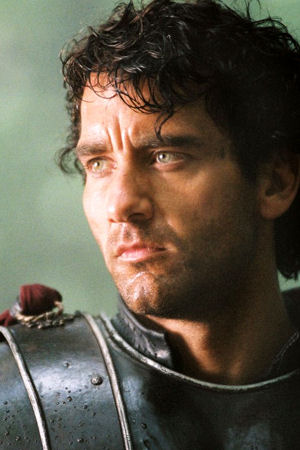
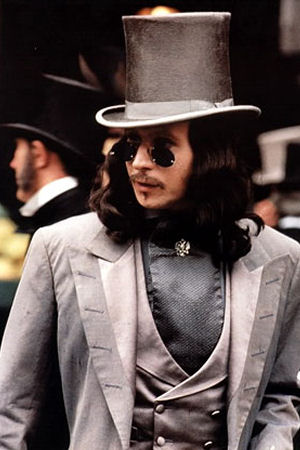
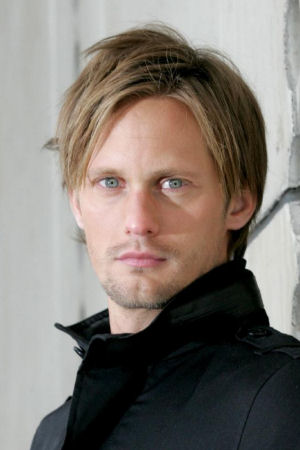
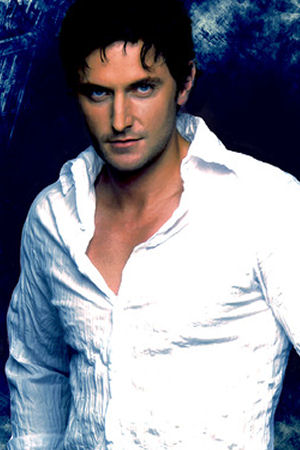
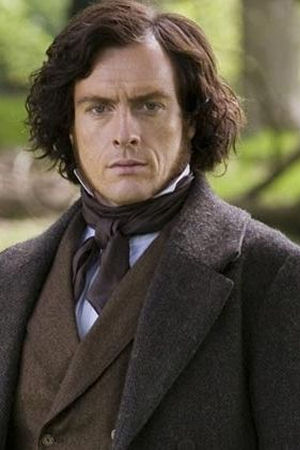
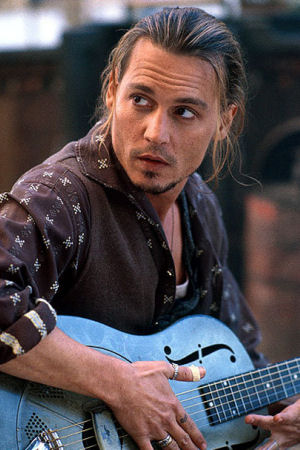
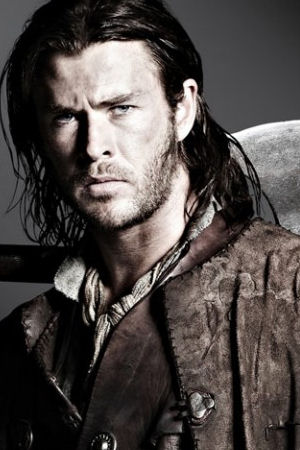
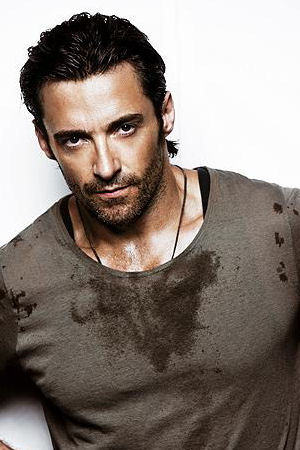
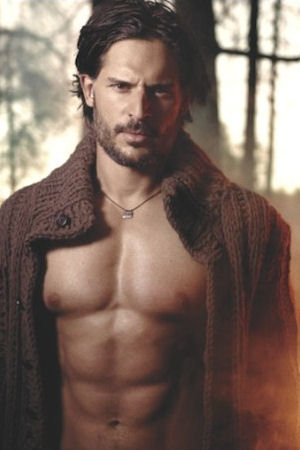
Commenti recenti
7 anni 25 settimane fa
7 anni 25 settimane fa
7 anni 25 settimane fa
7 anni 25 settimane fa
7 anni 25 settimane fa
7 anni 26 settimane fa
7 anni 26 settimane fa
7 anni 26 settimane fa
7 anni 26 settimane fa
7 anni 26 settimane fa